Q&A: Gamecock: Year One
To mark the publisher's first anniversary, CEO Mike Wilson talks about coming back into the game industry and what's changed since his time with Gathering of Developers.
In February, Gathering of Developers cofounders Mike Wilson and Harry Miller announced their return to the world of gaming in the form of Gamecock. After seeing their original indie-focused collaboration acquired by Take-Two and assimilated into the world of corporate game publishing in 2001, the pair needed a break from the industry.
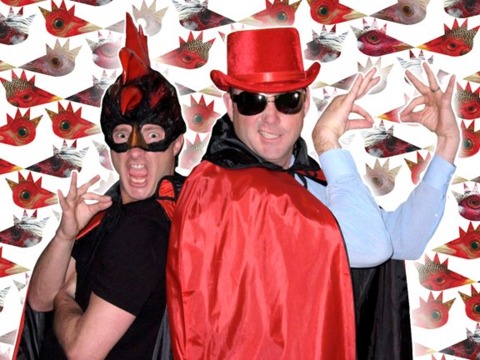
But now they're back, and Gamecock is celebrating a full year of existence by publishing its first games--Renegade Kid's DS adventure Dementium: The Ward and Auran's massively multiplayer online PC game Fury--next month.
Although Wilson has started up new companies before, Gamecock's first year was still a learning experience for him. For instance, he found out during the E3 Media and Business Summit that one can be ticketed for driving around Los Angeles while wearing a rooster mask (that counts as driving with an obstructed view, apparently). Earlier this week, GameSpot sat down to mine even more nuggets of enlightenment from Wilson's first 365 days at the helm of Gamecock.
GameSpot: You've been through the process of getting a new publisher up off the ground before. What's been different this time?
Mike Wilson: Just the benefit of hindsight and experience, with part of that hindsight coming from going back to Take-Two for a while on hiatus from running my own company. They hired me back, which was a surprise because I didn't exactly leave gracefully from the industry. [Laughs.] I was like, "Screw you guys." I hated the way they were running their business and our business.
So it was a big shock to me when they called me up and offered me a bunch of money to get back in. It was weird, and it didn't really work out then either, but what it did do was afford me the internal data on how all the Gathering of Developers stuff did. Which was a lot better than what Harry and I felt like when we got out before.
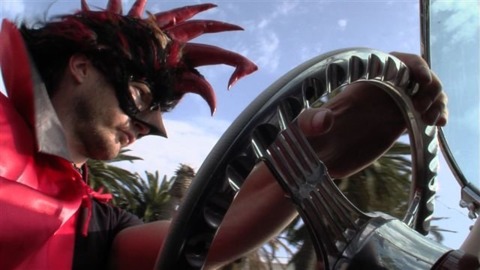
GS: So even as the head of Gathering of Developers (which became God Games) for Take-Two, you didn't have all the data on how your games did?
MW: No. You have to realize they bought us in May of 2000, and we left right after May of 2001. Our partner [Gathering of Developers cofounder Doug Myres] died in May of 2001, and that was the last blow to us that it wasn't fun. We didn't see any reason to stick around at that point. The crusade was over, and we weren't making any decisions for God Games anymore.
GS: Can you give an example of something that was cast in a different light by that data?
MW: Yeah, I got to see how Max Payne did, Stronghold, Mafia, Hidden & Dangerous, all of these things that came out right after we left or as we were leaving, and how all the other games did given a bit more time. Pretty much everything we did--even the ones we thought were grand disasters like the Blair Witch- and Kiss-licensed stuff--made money. I never would have guessed that. When you launch something, it looks like it succeeds or fails in the first few weeks or months. Some of these things, when they get down to $10 or whatever, they just take off.
That was the real wake-up. I realized why they hired me back when I sat down with a guy doing royalty reports and he was writing out a check to the guys who made Heavy Metal: FAKK 2 for us. That was one of our most expensive games, and I didn't think it would have earned out, but that's when I found out that pretty much everything we did eventually made money.
It was enough to say that works pretty well. We never had the funding we needed to stay independent and get to the finish line, but it was certainly worth trying again if we could raise enough money to do it properly this time. So that's what inspired Harry and Rick [Stults, Gamecock COO] and I to put the band back together again. But we were all committed to not getting back into the business underfunded. Because that was no fun.
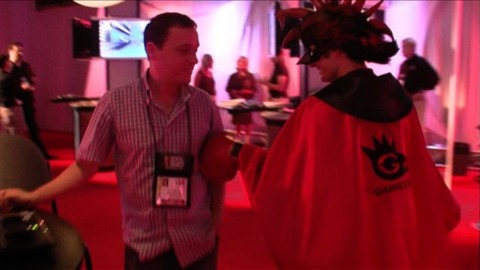
GS: Have you had any sort of problems this year with other people in the industry looking at your guerrilla marketing and sense of humor and overlooking or discounting the fact that you also have to run a business and make games?
MW: Absolutely. People that really follow the industry maybe question that stuff, but the average gamer just cares about the games. And whatever way you can get them to hear the game enough times to make them think it's worth checking out is all they care about; they don't care if I have a proper accountant on staff. The industry-watchers I'm sure wonder what we're doing and if you can really have that much fun running a business. The answer is yes, you can.
GS: You're announcing these games at a pretty good clip. How big can you scale your business model and still retain the advantages you grant indie developers by virtue of being able to give their projects more of your attention?
MW: We feel like our sweet spot is 10 to 12 games at any given time, and each of those can be on multiple platforms. We don't ever want to have 25 or 50 games going, and that's the advantage of being a private company instead of public. If we do really well one year, we can do just as well the second year and everybody's happy. With a public company, no matter how well you do, you have to do so much more the next year. Because you've got all these people who just bought their stock this year, there's ongoing pressure to keep growing no matter how big you are or how well you're doing. Even for the really smart public companies, you can only get so big and have it make sense.
GS: Has your game plan changed much over the last year?
MW: Not too much. We're sort of platform agnostic, so we've watched the success Nintendo has had and have been very happy about that. Don't get me wrong, there are always speed bumps, but it's kind of run like we said it was.
It was really scary in February when we announced the company, especially with our ridiculous name, and wondering if that would lead to a lot of backlash. We tested it out [with partners], but once they saw that we showed up and were there to play, it was all open arms.
GS: What were some of the biggest speed bumps you mentioned?
MW: Well, the landscape with the ESRB has changed quite a bit. That's been interesting dealing with the amount of power they have and how challenging it can be for marketing and PR stuff these days. It's not just submitting for rating; you have to submit every ad, every trailer, every press release. And it's not just them, it's dealing with the console companies, too. It's definitely not the Wild West it was back in the Gathering days. We were almost all PC stuff, and we didn't have to submit ads or anything back then.
[Another speed bump was] we discovered that it's actually the letter of the law with Nintendo to put the publisher's name on the front of the box and the spine, and the developer only on the back. Obviously, this flies in the face of our philosophy of who deserves the credit, and how gamers can actually see who made the game they love or hate, and thereby develop a relationship with their favorite artists, just like authors, musicians, directors, and so on. Nintendo of America says it's a customer service issue, and they believe people might try to call the developer if they have a problem with the game, and they want them to call the publisher, who is the licensee of NOA.
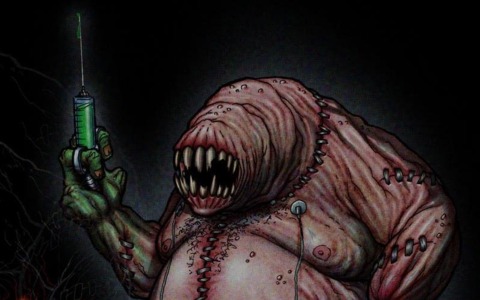
So Renegade Kid, Dementium's developer, chose to just roll with it and be on the back of the box. We did start the Dementium manual with the following statement: "We at Gamecock Media Group want you to know that we did not make this game. An awesome new developer in Austin, TX, named Renegade Kid made it. Check them out at RenegadeKid.com.
For what it's worth, Sony and Microsoft also require the publisher/licensee logo to be in the holy lower right corner, but you can also put the developer logo in the lower middle.
The publisher-branding thing is one of the most backward ideas in this industry, if you ask me. It's absolutely ludicrous to think that any gamers can have loyalty to these giant publisher names who create 100 different games a year, which vary wildly in scope, genre, and quality. It's like imagining someone saying "Man, I love Random House," or, "I can't wait for the next offering from Universal Pictures." Give me a break. Gamers need to know who their favorite talent is in this industry, not their favorite publicly traded conglomerate of suits.
GS: Have you had to deal with foreign ratings bodies yet? Is it interchangeable?
MW: Not yet. They're really pretty different. Some of our upcoming titles will see announcements soon for European copublishers. In the not-too-distant future we hope to have our own operation up and running in the UK, too, so that'll be our first foray into the PAL territories and dealing with [their ratings boards] directly. I've looked at their codes and stuff, but I don't know in day-to-day practice. It seems to me that the US is the most restrictive. [Laughs.] I don't want to talk about it too much because these are people I have to deal with every day, but I think most of the world considers us pretty prudish in terms of our advertising restrictions.
We've been putting out a series of live action/gameplay mix trailers for Dementium: The Ward. We have to submit these to NOA since it's a DS game, and also to the ESRB for approval. The latest one was a parody of a TV prescription drug ad, and it listed possible side effects of "Dementium"--some of which involved vomiting and loss of bowel control, and so on--with quick shots of these side effects in action. NOA has been very understanding of these often gory trailers, one of which involves my own 10-year-old daughter running around screaming covered with blood in a real-life abandoned, decayed mental hospital. [But they] said, "Well, this one's a little over the top. Please either remove the shot of the DS hardware, or the shots of the loss of stomach, bladder, and bowel control."
It was a tough call, but we decided in about seven seconds to remove the shot of the DS hardware, and it got approved by NOA. Then it went on to the ESRB, who listed several violations. Their code protects viewers from advertising that would be offensive to the average consumer, and has a whole section specifically about scatological humor. Apparently the ESRB believes that most prime-time comedies, never mind the entire Comedy Central channel, would be offensive to the average consumer. We had to put up a "censored" screen over those shots to get their approval. This, the same board who approves horrifically gruesome, violent games and ad images on a daily basis (for M-rated games, behind an age gate mostly), really wants to be strong on fart jokes, for our protection.
Our European counterparts were thrilled, naturally, since they know they'll get to release the uncensored version over there and get a ton more views than this one.
GS: What is it about the US and the US gaming industry that's led to that more restrictive attitude?
MW: I think it's a reaction to a very conservative wave of politics that we've been living in for the last eight years or so. Games have been the new heavy metal music, or Dungeons & Dragons, or Elvis Presley before that. We're sort of the bastard stepchild of our culture, so a lot of stuff gets blamed on games. The parents groups and the politicians fighting for these regulations I think really believe they're doing the right thing, but unfortunately they don't always play these games or know what they're talking about.
It's just the industry trying to protect itself. It's a young industry. And I guess American culture in general is a bit on the prudish side, especially with regards to anything having to do with sex. We seem pretty cool with the violence. [Laughs.] That's a bit backward if you ask me. I'm with the Germans on that.
GS: As a publisher, is Gamecock's obligation more to make games that put the industry in a better light, or is it to side with developers who might want to push the envelope as far as it can?
MW: We definitely favor things that maybe other publishers would pass on, but it's not usually for anything racy or dangerous. We just love original content. The unifying thread for all our games is just that they're the games the teams really want to make. If that somehow pushes the envelope, then it's our job to support them. But for the most part, developers aren't looking to push any political envelope so much as make a great game that's fun, because they're gamers.
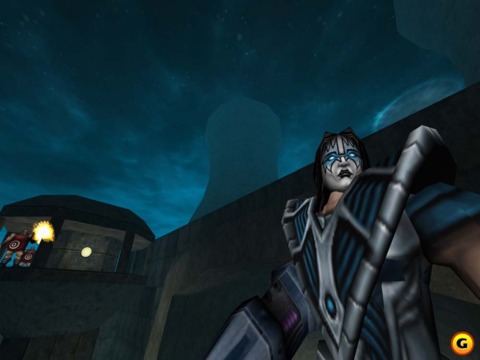
GS: You mentioned licensed games like Blair Witch and Kiss as "grand disasters." Would you consider doing licensed properties with Gamecock?
MW: I think the developers with the Kiss game were embarrassed to be making a Kiss game, and therefore made a first-person shooter where you couldn't even tell you were Kiss, and with practically no Kiss music. [We'd consider doing a licensed game] only if a developer came to us and had this license and were just dying to do it. You can tell with these guys whether they're really excited to be pitching you what they're pitching, or if they're just doing it because they think that's what you'd green-light.
I never say never. I'm not saying we'll never do a license or a sequel, but if we do, it'll be because a really good team came in really excited about doing it, not because we have a stockpile of licenses.
GS: Will you say never to a Kiss game?
MW: Yes, I'll say no to a Kiss game right now.
GS: So it's almost never say never?
MW: Yeah, one go-around with Gene Simmons is enough for me. That dude is all business all the time. We actually hung out a fair amount, but I can't say that was all good.
Got a news tip or want to contact us directly? Email news@gamespot.com
Join the conversation